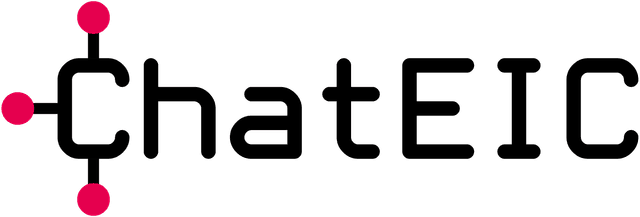
Why It's Great to be a Female Entrepreneur in the EU (EIC Accelerator)
The Europen Commission has long implemented policies and targets to increase gender equality across all industries and government institutions. While the EIC Accelerator (formerly the SME Instrument Phase 2) has been largely free from any interventions of such policies, there are a variety of factors that have been part of the evaluation process for a long time.
The Gender Dimension of the EIC Accelerator
The proposal template and the evaluation results have always included comments on gender equality for all applying Small- and Medium-Sized Enterprises (SME) or startups which means that the score of a submitted proposal has always been affected by gender-related policies (see Using the Evaluation Summary Report (ESR) to Improve Grant Proposal Writing). Furthermore, if two applicants have a matching score, the number of female team members in the respective company could influence the success of the application as well.
In every EIC Accelerator application, it is therefore of benefit for the success of the proposal to address hiring, gender treatment and the effect of the project on gender equality as a whole. It is also useful to research the repercussions of a certain technology on gender differences.
Preferential Selection of Female CEO's
Since the Green Deal cut-off in May (see The European Green Deal - A Dedicated Cut-Off for the EIC Accelerator), the EU has implemented new progressive policies to increase the number of female entrepreneurs. The initial goal was to boost the number of women-led companies who successfully received the grant funding from the previously small level (i.e. 1-5%) to 25% of all selected companies under the EIC Accelerator (SME Instrument Phase 2).
For the May cut-off, this target has even been exceeded with the total share of female CEO's who received the grant being an unprecedented 34%. This means that the number of women-led companies that have been financed in May 2020 is higher than the number of all female CEO's funded in the previous deadlines combined (i.e. 22 were funded in May and 16 combined for March and January).

source: @JeanDavidMALO1 on twitter
The ambitious quota was reached by reducing the threshold (i.e the minimum score needed to receive an interview invitation) for female CEO's so that the number of invited female-led companies increased accordingly. To organize such a policy, the EC had each EIC Accelerator applicant declare the gender of their CEO within the submission forms so that such selections could be automated to reach the required number. If the gender was not declared, it was considered to be male by default. In addition, if the quotas were not being reached during a single interview week, previously rejected female-led companies would be eligible for a runner-up interview to reach the 25% mark.
Conclusion
This policy presents a great opportunity for female-led companies since the threshold for the invitation, influenced by the selection quota, is lower for female CEO's than for male CEO's. This, of course, does not mean that women have it easy in any way but it can make the difference between almost not receiving an invitation to the pitch week in Brussels and being invited (and potentially funded).
The projects that are reaching evaluation scores above 13.5/15 and are entering step 2 of the EIC Accelerator, female or not, are all high-level business proposals deserving of funding with the difference between invited and not invited being obscure in many cases. As such, every advantage should be welcomed by eligible companies.
Considering that the shares of invited and funded women-led companies have been as low as 5.9% and 2.3%, respectively, earlier in 2020, the overall rise can be seen as 5- to 17-fold in only six months (and likely much higher compared to 2019). Depending on the cut-off and some luck, women can have a substantial advantage and should consider applying to the EIC Accelerator if they are working on an innovative technology with significant scale-up potential (see Business Models for EIC Accelerator Applications).
This can also be of benefit for companies that have unsuccessfully applied to the grant before since they might have an easier time receiving the interview invite in the future. This, of course, does not mean that a low-quality or poorly edited application would receive a high score just because of the CEO's gender but a professionally written proposal can have higher chances for the October 7th cut-off.
These tips are not only useful for European startups, professional writers, consultants and Small and Medium-Sized Enterprises (SME) but are generally recommended when writing a business plan or investor documents.
Deadlines: Post-Horizon 2020, the EIC Accelerator accepts Step 1 submissions now while the deadlines for the full applications (Step 2) under Horizon Europe are listed below. The Step 1 applications must be submitted weeks in advance of Step 2. The next EIC Accelerator cut-off for Step 2 (full proposal) can be found here. After Brexit, UK companies can still apply to the EIC Accelerator under Horizon Europe albeit with non-dilutive grant applications only - thereby excluding equity-financing. Switzerland has resumed its participation in Horizon Europe and is now eligible for the EIC Accelerator.
EIC Accelerator Step 1 Deadline 2025
Contact: You can reach out to us via this contact form to work with a professional consultant.
AI Grant Writer: ChatEIC is a fully automated EIC Accelerator grant proposal writer: Get it here.
EIC Accelerator: EIC Accelerator delivers flexible funding options including blended finance (€2.5M grant + €0.5M-€10M equity), grant-only (up to €2.5M), or equity-only arrangements for scale-up and market deployment of breakthrough innovations. The initiative targets SMEs, start-ups, and small mid-caps with up to 499 employees. Technology areas include Biotech, Engineering, Artificial Intelligence, Energy, Quantum, Aerospace, Advanced Materials, and Semiconductors. Get Started
EIC Pathfinder: EIC Pathfinder delivers up to €3 million for Open calls and up to €4 million for Challenge-based calls to support early-stage research and development with proof-of-principle validation. The initiative requires research consortia with a minimum of 3 partners from 3 different countries, including universities, research organizations, and SMEs. Primary technology focus areas include Health/Medical, Quantum Technologies, AI, Environmental/Energy, and Advanced Materials. Get Started
EIC Transition: EIC Transition delivers up to €2.5 million in funding to overcome the 'valley of death' gap between laboratory research and market deployment, emphasizing technology maturation and validation. The initiative supports single legal entities or small consortia of 2-5 partners including SMEs, start-ups, spin-offs, and research organizations. Key technology domains include Health/Medical Technologies, Green/Environmental Innovation, Digital/Microelectronics, Quantum Technologies, and AI/Robotics. Get Started
EIC STEP Scale-Up: EIC STEP Scale-Up delivers significant equity investments of €10-30 million for established deep-tech companies prepared for hyper-growth and large-scale expansion. The initiative targets SMEs or small mid-caps with up to 499 employees who have obtained pre-commitment from qualified investors. Primary focus areas include Digital & Deep Tech (Semiconductors, AI, Quantum), Clean Technologies for Net-Zero objectives, and Biotechnologies. Get Started
EIC Pre-Accelerator: EIC Pre-Accelerator represents a pilot initiative delivering €300,000-€500,000 in funding for early-stage deep-tech development and preparation for the EIC Accelerator program. This program is exclusively accessible to single SMEs or small mid-caps from 'Widening countries' to foster regional innovation development. The initiative encompasses deep-tech innovations across physical, biological, and digital domains. Get Started
EIC Advanced Innovation Challenges: EIC Advanced Innovation Challenges represents a new pilot initiative delivering €300,000 (Stage 1) and up to €2.5 million (Stage 2) for breakthrough deep-tech innovations through ARPA-style staged funding mechanisms with integrated demand-side engagement. This initiative targets single entities or small consortia (2-3 partners) including SMEs, start-ups, and research organizations. Primary focus areas include Physical AI for autonomous robotics applications and New Approach Methodologies (NAMs) for animal-free biomedical testing, with TRL 4 entry requirements and demonstrated end-user commitment. Get Started
Eureka Network: The Eureka Network delivers various international collaborative R&D initiatives such as Network Projects, Clusters, Eurostars, Globalstars, and Innowwide, providing funding from €50K to €6.75M per project based on the specific initiative. This network emphasizes market-driven innovation and deep-tech advancement across multiple technology sectors including ICT/Digital, Industrial/Manufacturing, Bio/Medical Technologies, Energy/Environment, Quantum, AI, and Circular Economy. Eligible participants include SMEs, large enterprises, research organizations, universities, and startups, with Eurostars particularly focused on R&D-performing SMEs. Get Started
Eurostars: Eurostars represents a joint EU-Eureka initiative delivering €50K-€500K for international R&D collaboration specifically led by SMEs. The program adopts a bottom-up approach, accepting projects from all technology fields without predefined thematic restrictions. R&D-performing SMEs must lead the consortium and demonstrate significant R&D activities. Get Started
Innovation Partnership: Innovation Partnership enables collaborative innovation between public and private sectors with typical funding of €1-5 million per project. The initiative supports cross-sectoral strategic technologies through public-private partnerships and consortia. Projects concentrate on addressing societal challenges through collaborative innovation approaches. Get Started
Innovation Fund: The EU Innovation Fund delivers substantial funding of €7.5 million to €300 million for large-scale demonstration of innovative low-carbon technologies. The initiative targets clean energy, carbon capture, renewable energy, and energy storage technologies to accelerate the transition to a low-carbon economy. Eligible participants include large companies, consortia, and public entities capable of implementing large-scale demonstration projects. Get Started
Innovate UK: Innovate UK delivers various programs with funding ranging from £25K to £10M depending on the specific initiative, supporting business-led innovation, collaborative R&D, and knowledge transfer. The organization funds projects across all sectors with particular emphasis on emerging technologies and supports UK-based businesses, research organizations, and universities. Programs are designed to drive economic growth through innovation and technology commercialization. Get Started
Industrial Partnership: Industrial Partnership delivers €2-10 million in funding for industrial research and innovation partnerships focusing on manufacturing, industrial technologies, and digital transformation. The initiative supports industrial consortia and research organizations in developing collaborative solutions for industrial challenges. Projects aim to strengthen European industrial competitiveness through strategic partnerships. Get Started
LIFE Programme: The LIFE Programme delivers €1-10 million in funding for environmental protection, climate action, and nature conservation projects across the European Union. The initiative supports environmental technologies, climate adaptation strategies, and biodiversity conservation initiatives. Eligible participants include public authorities, private companies, NGOs, and research institutions working on environmental and climate challenges. Get Started
Neotec: Neotec represents a Spanish initiative delivering €250K-€1M in funding for technology-based business creation and development, supporting the growth of innovative Spanish SMEs and start-ups. The program covers all technology sectors and aims to strengthen Spain's technology ecosystem. Funding is specifically targeted at Spanish technology-based SMEs and start-ups to enhance their competitiveness and market presence. Get Started
Thematic Priorities: EU Thematic Priorities encompass various programs aligned with EU strategic priorities including green transition, digital transformation, health, and security initiatives. Funding amounts vary based on the specific program and call requirements, with projects designed to address key European challenges. Applicant eligibility varies by specific program and call, with different requirements for different thematic areas. Get Started
Any more questions? View the Frequently Asked Questions (FAQ) section.
Want to see all articles? They can be found here.
For Updates: Join this Newsletter!
